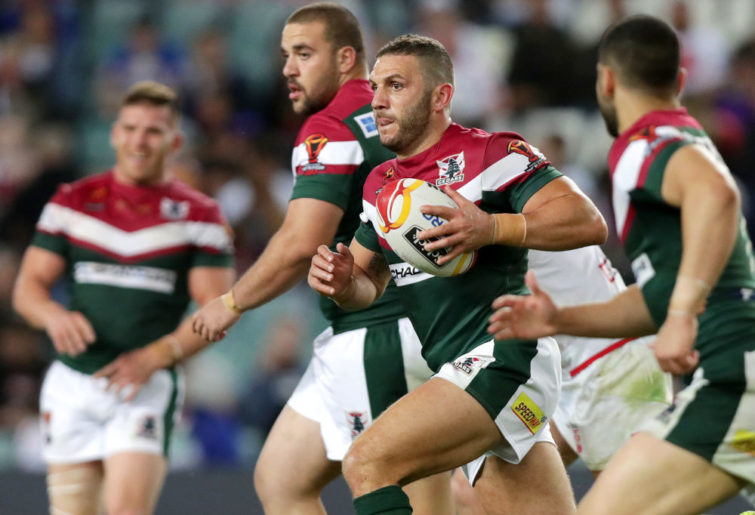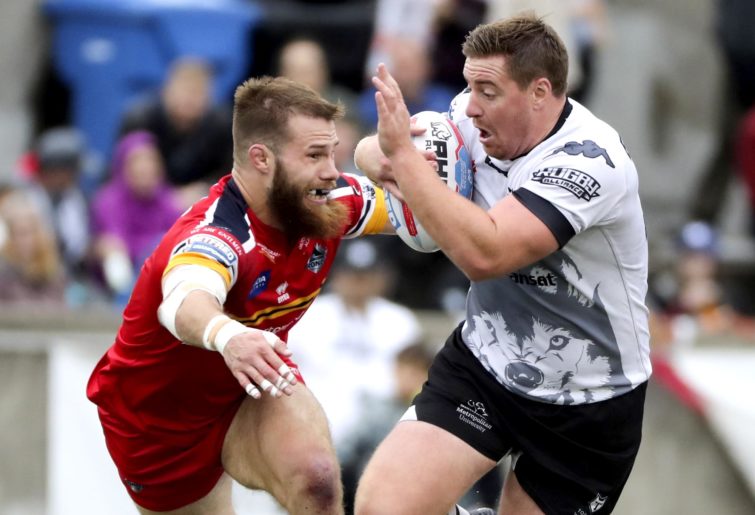Joey amusingly claims Isaako is 'blaming groin' for horror conversions, palming them off to Nikorima
Jamayne Isaako missed five out of nine conversions in a huge win over the Eels - with the Channel Nine team having some fun…
I’ve been having some discussions of late about doing another book, a rugby league book, and it’s led me to once again contemplate the notion of “breakaway” and “rebel” competitions.
Myself and others have touched on this contradiction before. In a sport made born from rebellion, how do you make a morally watertight argument against further splintering and warfare?
And we see this almost every day in rugby league around the world, the latest example being Lebanon’s mainly Australian-raised players trying to overthrow the country’s board and being charged en masse with misconduct.
To most readers, this would seem a rather abstract concept: that the actions of a group of top-hatted men at a Victorian-era hotel in England’s industrial north two lifetime ago would have an impact on Robbie Farah.
But it is more about the demographic that the sport annexed in August that year than actual behaviours being passed down. Rugby league is, in England, Australia and New Zealand anyway, the sport of the poor and downtrodden.
As I’ve written before, for its first 12 or so years it looked almost identical to rugby union – it was a social movement rather than a different sport. To this day, the game has a distrust of authority and a workers-first rebellious streak embedded deep in its DNA.
At this point I could branch off into one of my favourite diatribes, about how the New World – North America – holds our best and perhaps only hope of breaking the self-destructive cycle of the last century and a quarter because there, our sport’s gene pool can finally grow deeper and more diverse.

Robbie Farah (NRLPhotos / Gregg Porteous)
In North America’s sprawling sports market lies the one thing we’ve always lacked – the voice of reason.
But for now, I’d like to discuss the “one man’s terrorist is another’s freedom fighter” dilemma we have in chronicling our past and deciding which path to take in our future.
Recently, there has been talk in England – and yes, I’ve been at the forefront of it – of what would happen if Toronto Wolfpack won the Championship – the second division – but turned down the opportunity to be promoted to Super League.
I don’t think this will happen, as I keep stressing.
There are reasons why it could; chief amongst these would be excessive demands placed on them by the new administration of the top competition such as first class airfares, five-star hotels etc, etc. The goalposts seem to have moved since Toronto joined League 1, with a promise of promotion to Super League if they fairly earned it.
This proposition has been treated by some os treacherous – promoting discord within a struggling sport. Well, I have been writing a column called Discord for a decade now, so…
But moreover, and here’s the kicker, how can it be treacherous when the Championship – where under this hypothetical scenario the Wolfpack would chose to stay – is run by the Rugby Football League, the sport’s governing body in England?

Will Toronto make it into the Super League? (Richard Lautens/Toronto Star via Getty Images)
Would not Super League be more “rebel” than any competition run by the RFL? How can the officials governing body be a breakaway?
Of course, during the Australian Super League years, the international governing body was Murdoch-aligned and the ARL Tests were unofficial but some people steadfastly refuse to accept this.
We pick our own “official” and our own “rebel” depending on complex criteria.
And this is where we find the “rebellion in our DNA” concept intersecting with reality. No doubt John Ribot felt rugby league would be missing out on a golden, once-only opportunity, if it turned away Murdoch’s Millions.
My own beliefs that the game should find a competition for people willing to invest in it if the right structures don’t exist already come from the same place.
When you are begotten by dissension and rebellion, where is the historical line of demarkation between ideas like these and actually acting on them?
I would suggest that as long as a plan or course of action comes clearly from an intention to improve the sport, regardless of whether it’s tossed up by a person on Twitter or a billionaire, it should be treated with respect.
But in the end, someone is going to be charged with – and given the resources for – shaking things up.
That might be expanding the NRL, moving teams out of Sydney, creating a pyramid in England that excludes lower division teams from ever being promoted or fighting with your national team players and as a result getting flogged in the next World Cup without them.
You earn the right to make those decisions by being elected or by convincing a rich person to support you.
Then you make the calls in full knowledge that you will more likely than not be demonised forever in the history of this strife-torn flag bearing sport of the oppressed.
The biggest contribution anyone can ever make to that sport is to bring more of those who like it for what it is, so the downtrodden are eventually outnumbered and the chip on the shoulder evaporates.